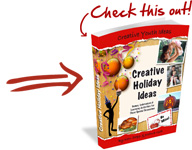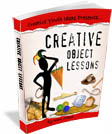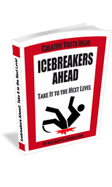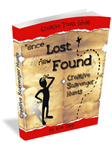In the autumn season, the leaves on the trees start changing colors. Depending on where you live you can see vibrant red, orange, yellow and brown leaves. And there still might be some green ones around as well. Soon they will detach themselves from the tree and fall to the ground. So we also call this season the Fall. But the leaves also serve as a spiritual object lesson.
What You Need
- Collect a variety of autumn leaves, at least one for each youth, of different sizes, shapes, colors.
What to do
- Display the leaves.
- Have each youth select a leaf that represents him or herself in some way.
- Ask the youth to describe every detail about their leaves to a partner. Have a couple of volunteers share the description with the group as a whole. You could aso have them tell the life story of the leaf in a creative way. What things has it endured? What things did it get to see / enjoy from its perch on the tree, how it lived through the seasons, and finally how it fell and ended up here.
- Ask each youth to display the leaf and share one thing about the leaf that is also true of them.
Observations for discussion
Every leaf has a life story. Leaves are temporary, different shapes, scarred, different colors, alive, dead, attached, detached, dry, moist, light, heavy, different sizes, different leaf patterns and veins, different ages, they change, some are blown away, others cling to the tree, some are brittle, others are flexible, rough, smooth, piled up, alone, they bring shade, reach for the sun, draw from the root, etc.
TAKE IT TO THE NEXT LEVEL
MAKE IT SPIRITUAL
Psalm 1 teaches us some lessons about trees, and says we are like trees. Read Psalm 1 from the Bible.
- How does God describe the wicked in Psalm 1 and how is similar to the Autumn leaves? (Like debris blown away by the wind, unable to stand, they will die.)
- How does God describe the Righteous in Psalm 1 and how is this similar to a tree planted by the water? (Blessed, happy, delighted, like leaves that do not doesn’t wither)
- What truths can we learn from Psalm 1?
- What is the difference between them that leads to the different outcome?
MAKE IT PRACTICAL
- What are the ways that youth draw closer to God, to be refreshed and strengthened by Him, to grow strong and fruitful, to not whither, but be full of life? Why is it important?
MAKE IT PERSONAL
- What will you do this week to draw closer to God, to be refreshed and strengthened by Him, to grow strong and fruitful, to not whither, but be full of life?
SCRIPTURE
“Blessed is the man who does not walk in the counsel of the wicked or stand in the way of sinners or sit in the seat of mockers. But his delight is in the law of the LORD, and on his law he meditates day and night. He is like a tree planted by streams of water, which yields its fruit in season and whose leaf does not wither. Whatever he does prospers. Not so the wicked! They are like chaff that the wind blows away. Therefore the wicked will not stand in the judgment, nor sinners in the assembly of the righteous. For the LORD watches over the way of the righteous, but the way of the wicked will perish.” – Psalm 1
 Creative Holiday Ideas
Creative Holiday IdeasGames and Activities in Celebration of common Holidays.
Creative Holiday Ideas has over 300 pages of ideas to help you plan not only your next Fall Festival or Thanksgiving Celebration, but also most of the other common holidays. If you’ve ever wondered what you’re going to do for the holidays and how you’re going to do it, this resource is for you.



